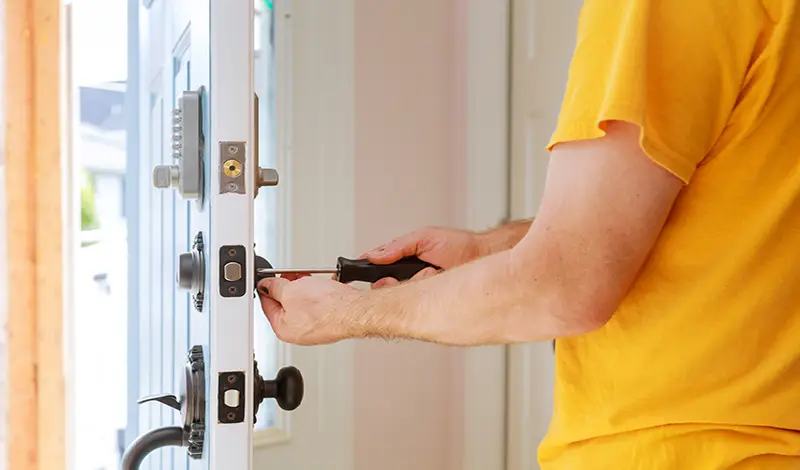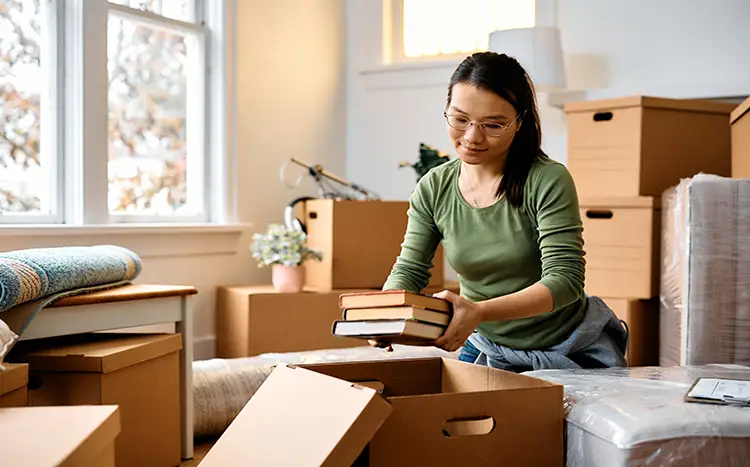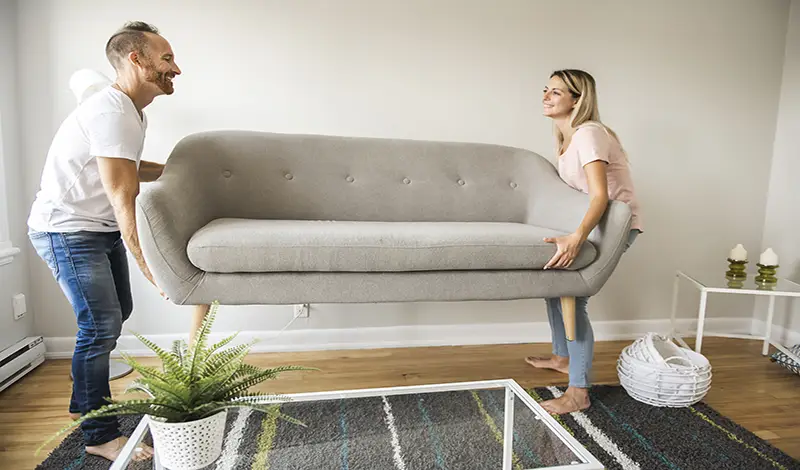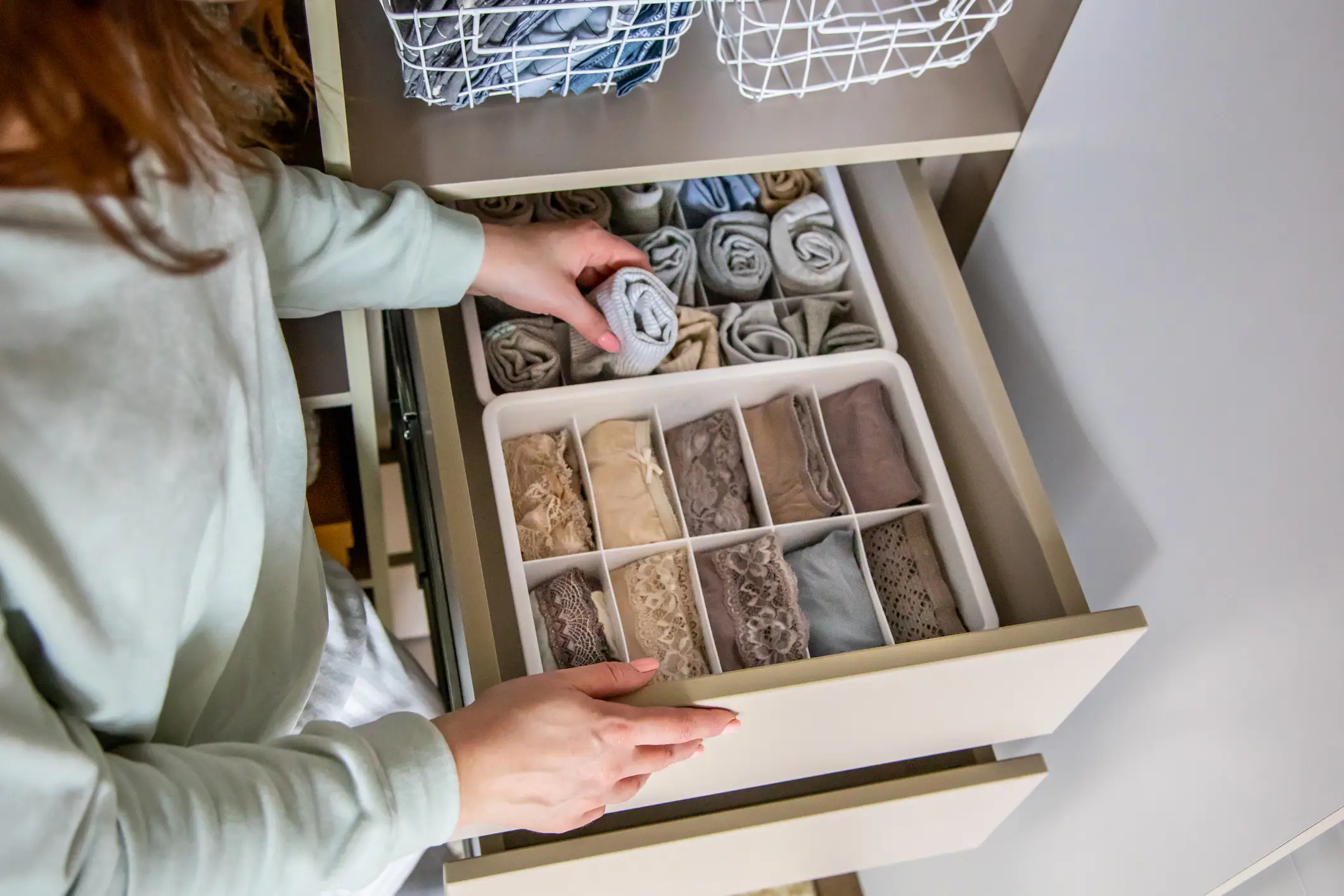Checklist for a New Homeowner
Published on August 27, 2024 | 5 Minute read

Melanie
Ortiz Reyes
Content Specialist
Congrats on your new home! Moving in is exciting, but there’s a lot to think about once you get those keys. To help you make the transition smoother, here’s a checklist packed with practical steps and friendly advice to help you get settled and enjoy your new space.

1. Change the Locks
First things first, change those locks. You might not know who else has a copy of the keys from the previous owners, so it's smart to make sure you’re the only one with access. This small step will give you peace of mind and make your home feel truly yours.
2. Set Up Utilities
Next up, get your utilities in order. Contact your electricity, water, and gas providers to ensure everything is set to go. Don’t forget to arrange for internet and cable too! Having all these services up and running will make moving in a lot more comfortable.
3. Inspect and Clean
Before you dive into unpacking, take a walk-through of your new place. Check for any minor issues that might need fixing like a leaky faucet or a squeaky door. Also, give your home a good cleaning. It’s easier to do a deep clean before you’ve got boxes and furniture in the way.
4. Test Safety Features
Safety is crucial. Make sure smoke detectors and carbon monoxide detectors are working properly. It’s also a good idea to locate your circuit breaker and water shut-off valves. Knowing where these are can save you from a lot of stress in case of an emergency.

5. Unpack Wisely
When it’s time to unpack, start with the essentials. Think about what you need immediately: kitchen supplies, toiletries, and bedding. Unpacking strategically can help you get settled faster and make your new home feel more organized.
6. Update Your Address
Don’t forget to update your address! Notify the postal service, and also remember to update your address with banks, credit cards, and any subscriptions you have. It’s easy to overlook this, but you’ll want to ensure all your mail gets to you.
7. Check Home Maintenance
Take some time to familiarize yourself with your new home’s maintenance needs. Check out the HVAC system, plumbing, and appliances. It’s a good idea to follow any maintenance recommendations to keep everything running smoothly.
8. Meet the Neighbors
Introducing yourself to your new neighbors is a great way to start on the right foot. A friendly hello or a small gift, like baked goods, can make a big difference. Plus, your neighbors can be a great source of local tips and recommendations.
9. Create a Home Inventory
It’s useful to have a record of your belongings. Create a home inventory with photos or videos of valuable items. This can be really helpful for insurance purposes and in case you ever need to make a claim.

10. Plan Your Space
Before you get too settled, think about how you want to arrange your furniture and decor. Measure your spaces to make sure everything fits, and start planning how to make each room work for you.
Here's how to furnish your home on a budget.
11. Review Your Insurance
Double-check your homeowner’s insurance to make sure it’s active and covers what you need. It’s important to understand what’s covered so you’re protected against potential risks.
12. Explore Your New Area
Take some time to explore your new neighborhood. Find out where the nearest grocery store, pharmacy, and other essential services are located. It’s also fun to discover local parks, restaurants, and other spots that you might enjoy.
13. Set Up a Maintenance Schedule
Keeping up with home maintenance can save you from bigger issues later. Set reminders for regular tasks like changing air filters and cleaning gutters. A little upkeep goes a long way in preserving your home’s condition.
14. Prepare for Emergencies
It’s a good idea to have an emergency plan in place. Know the quickest routes to local emergency services, and keep a first-aid kit, flashlight, and other essentials handy. Being prepared helps you stay calm in unexpected situations.

15. Get Organized
As you unpack, take the opportunity to get organized. Use shelves, bins, and other storage solutions to keep things tidy. An organized home feels more comfortable and makes daily life a bit easier.
16. Consider Home Security
If your new home doesn’t already have a security system, you might want to look into one. Modern systems offer features like cameras and alarms that can give you extra peace of mind.
17. Adapt to the Climate
If you’ve moved to a new area with a different climate, you may need to adjust how you manage your home. Check that your heating and cooling systems are set up to handle the local weather conditions.
18. Plan for Home Improvements
Once you’re settled, you might start thinking about home improvements. Make a list of projects you’d like to tackle and prioritize them based on your budget and needs.
19. Get Involved Locally
Joining local groups or attending community events can help you feel more at home. Look for neighborhood associations, social clubs, or local events to get involved and meet new people.

20. Enjoy Your New Home
Finally, don’t forget to enjoy the process! Take time to relax and appreciate your new space. Personalize it with touches that reflect your style and make it a place where you and your family can create wonderful memories.